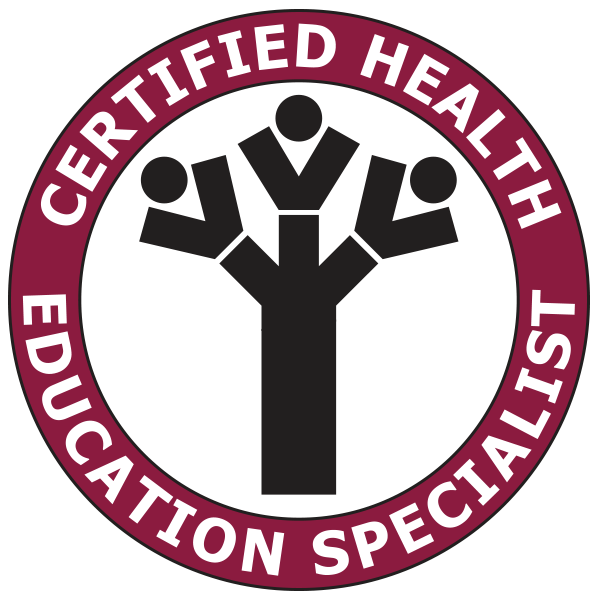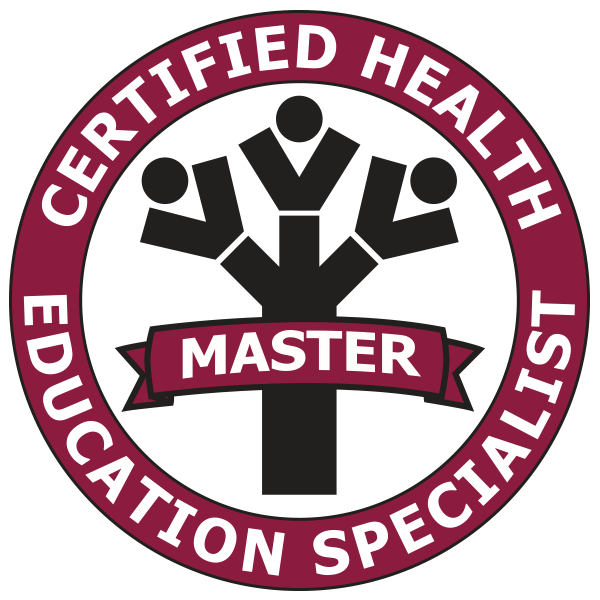About Health Education and Promotion
What do health educators do?
In 2023, there were about 62,100 health educators nationally. The field is expected to grow by 7% from 2022 to 2032. | Where do health educators work?
|
What is CHES?CHES
stands for Certified Health Education Specialist. CHES is a voluntary
professional certification program that establishes a national standard
for health educators.
There are eight Areas of Responsibility that present the skills and expertise needed for a position in the field of health education and promotion. These serve as the basis for the CHES and MCHES exams.
|
|



